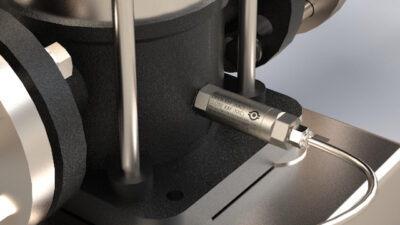Rockwell Automation is enhancing its appeal in process verticals such as pharmaceuticals via a steady stream of acquisitions. Historically strong in discrete and hybrid sectors, Rockwell also owes part of its process-industry momentum to software activities, including plugging new applications into a service-oriented architecture developed by the Rockwell Software unit.
A steady stream of acquisitions by Rockwell Automation is enhancing its appeal in process verticals such as pharmaceuticals. The automation giant—historically strong in discrete and hybrid sectors—also owes part of its process-industry momentum to software activities.A key part of this activity is enabling new application offerings to plug into the service-oriented architecture (SOA) developed by the company’s Rockwell Software unit. Fundamental to this SOA is the FactoryTalk Services Platform, a set of core services such as security, directory, and data access for Rockwell’s FactoryTalk suite.Kevin Roach, VP, Rockwell Software, met with Manufacturing Business Technology at Rockwell’s Automation Fair event in Chicago on November 14. Roach says the SOA’s services are being extended into new and acquired offerings that bolster Rockwell’s process-sector appeal. For example, not only did Rockwell partner with OSIsoft a year ago to leverage OSIsoft’s historian technology under the Rockwell name, but it has worked closely with OSIsoft so that the resulting product launched at the show—FactoryTalk Historian Site Edition (SE)—makes use of FactoryTalk Services.“This new version is integrated [with] the FactoryTalk suite [through] FactoryTalk Services—the SOA that we’ve built,” says Roach. “This offers some excellent connectivity.”For example, says Roach, the next step in Rockwell’s “tiered” and “distributed” historian strategy is to introduce—by June 2008—a historian embedded within Rockwell’s ControlLogix rack. This solution will be called FactoryTalk Historian Machine Edition (ME), and because it too will tap into the services, it can plug into site historians. “When you connect them together to a site historian, it will go and find them and configure itself to manage them automatically, with no more engineering work,” he says.Rockwell’s most recent acquisition is its October purchase of Pavilion Technologies , a vendor of advanced process control software for process and hybrid industries. Pavilion’s software uses historians for past data on process variability, which it then crunches with algorithms to fine-tune plant processes. Rockwell will add FactoryTalk SOA support to Pavilion’s software so that it can easily plug into historians and other applications, says Roach.Rockwell also made these acquisitions, which add to its appeal in the process industries:• The late 2005 purchase of Datasweep , a manufacturing execution system (MES) vendor. Under Rockwell, the MES has evolved to become FactoryTalk ProductionCentre. Roach says process capabilities have been added to the MES, such as a weighing & dispensing component.• The 2002 purchase of ProPack Data , a MES vendor for the pharmaceutical sector. Today the solution is called RS PMX, and Roach says its deep industry functionality will be redeveloped as common components with ProductionCentre.• The May 2006 acquisition of GEPA , a German vendor of change-management software for industrial automation products from vendors such as Siemens and others.• The July 2007 purchase of ICX Triplex , a vendor of critical control and safety solutions for process industries.In pharmaceuticals, one focus is to create common MES components. This will allow PMX users to migrate to the ProductionCentre architecture over time, says Roach. The first step was outfitting PMX to communicate with other systems via FactoryTalk Integrator, Rockwell’s middleware. The next component was weighing & dispensing, which is being followed by development of an electronic batch records (EBR) component, says Roach.James LaBonty, associate director of automation engineering for Wyeth Pharmaceuticals , Wilmington, Mass., presented at Automation Fair about Wyeth’s PMX deployment, and the rapid release of batch records supported by EBR. Basically, says LaBonty, rather than manual reviews of paper records, EBR allows managers to electronically review exceptions.Though he did not speak about migration plans, LaBonty said in an interview that Wyeth is interested in FactoryTalk Integrator as an updated means of integration to its SAP ERP system. Currently, Wyeth uses PMX Connect, which is considered more of a point-to-point integration utility.One of Rockwell’s MES goals, says Roach, is to have an SOA-enabled “horizontal” functionality that can combined as components to form industry solutions. For instance, when weighing & dispensing is paired with lot-splitting for raw materials such as powders, a process-industry MES begins to take shape. Likewise, in automotive, support for error checking and Andon board displays are needed.“We’re building industry applications on top of that horizontal platform,” says Roach. “The idea is to take the service dollars down, which takes the overall deployment cost and time down, takes the risk down, and makes the solutions more broadly available.”



